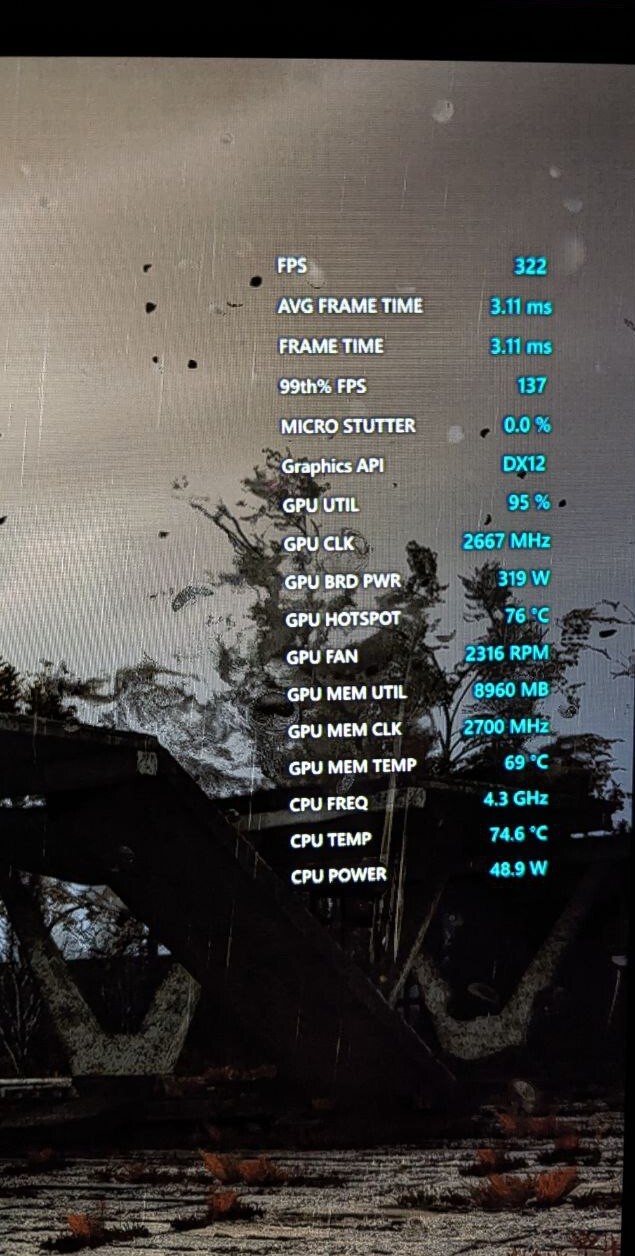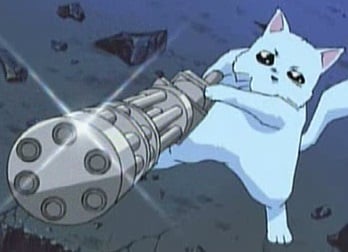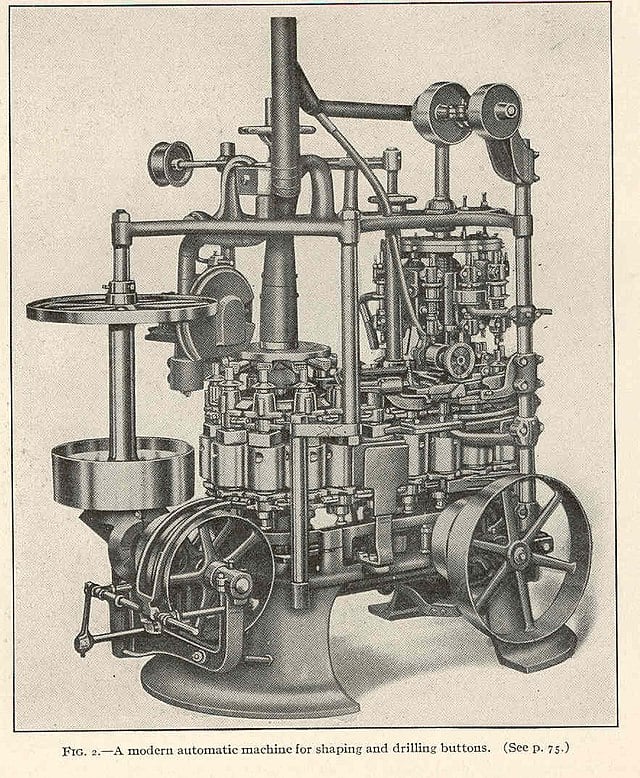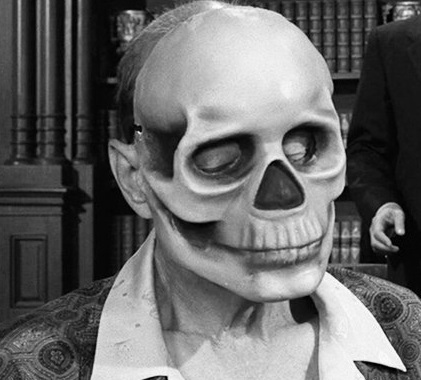It’s amazing what happens when management leave Devs alone to do actual work instead of calling SCRUM bullshit.
Goldeneye64 : 1997 JIRA : 2002
scrum: 1986
Scum: 3000BC
Or anyone creative
That might have worked then. Not so sure nowadays. The work ethic was different back then.
Edit: I didn’t realize the can of worms I opened up. Hopefully it stirs a little bit of constructive conversation. I realize I have an unpopular opinion here. That’s ok. I wish all of you a prosperous and content life. I’m not here to stir up hate. I simply expressed my opinion. I’ve learned a little about how passionate some of you are about this topic. I never thought I would start such a hornet’s nest.
People still create great shit when left to their own devices and properly cared for
Workers in the 90s are no different from any others
I was there in the 90s. Working full time. There was a noticeable difference in the work ethic from then to today.
I wonder if any incentives have changed in 35 years…
Nope, it’s Gen Y/Z who are the problem.
What kind of differences?
Ok. I’ll bite. Even though I believe this conversation will go nowhere.
Differences I have seen in work ethic between the 90s and today:
-
Constantly complaining about being broke but refusing to work any overtime.
-
Refusing to do anything outside the scope of their job duties. Even if it’s something small and won’t take any extra time or energy off their current job duty.
-
Demanding or taking long breaks causing others to pick up their slack. And then acting like the victim.
-
Overly emotional about deadlines and jobs duties. Making decisions based on their feelings and not the job/project at hand.
-
People then would usually figure out solutions to problems without any supervision. Ingenuity was rewarded and favored. Today, people seem to prefer to be micro-managed. This could also be a change in employer culture as well.
-
Entitlement culture/attitude. More people today believe they are owed something without earning it. Hierarchical structures were more rigid, with clear distinctions between management and staff. Respect for authority was expected.
-
Employees were more likely to stay with one company for years or even decades, building loyalty and expertise within their organization.
I guess I could go on. And not all of this is due to employees, rather, management issues that have gotten worse over time. But I still believe the root cause is a negative change in people’s work ethic. This is obviously not all inclusive. These are just some examples of what I’ve noticed between now and then. I have been working full time since the 90s. Yes, it’s anecdotal. But you asked me. This is my opinion. It’s okay if people don’t agree with me. But I would find it hard to believe most people would disagree with all or some of these points especially if they have been working as long as I have.
If people were payed more most of those problems would evaporate. There used to be a middle class in this country that made enough money to justify dealing with their boss’s bullshit expectations. Now everyone is getting the bare minimum and management wonders why they’re getting minimum effort. If you want people to have a better work ethic it has to be worth it for them. Dangle a fuckin carrot once in a while, you know?
If money was an issue, I would simply find a higher paying job. I’m not owed anything. I’m trying to do the best I can just like everybody else. I’ve never agreed 100% with what management does. I’m just happy to have a decent job that pays decently. I wasn’t handed this automatically. I worked my way up to it. I earned it.
I think you are mixing up cause and effect. Corporations stopped valuing their employees but expect the same kind of loyalty from when they used to actually pay enough. It’s normal for employees to feel demotivated and give less energy to a job that doesn’t respect them and is over eager to threaten and replace them.
I think I made that clear at the end of my above post
If this is what you’re seeing, the problem isn’t the employees.
If you can say with a straight face that employees prefer to be micromanaged, that’s the biggest, brightest, blinding red flag I can even imagine.
If you’re seeing this, your company has a major issue.
Entitlement culture/attitude. More people today believe they are owed something without earning it. Hierarchical structures were more rigid, with clear distinctions between management and staff. Respect for authority was expected.
This is the most middle-manager shit I’ve ever read. “Kids these days don’t respect me!”
I didn’t downvote you even though I disagree with you.
All of the examples you gave of differences have a distinct difference between working in the 90s and now. In the 90s we did all of the things you cite aren’t happening today because it paid off with something better later. It could be a raise in pay, a promotion, or even just experience that could be leveraged at a future job earning more. It was also the time of the final Gen-X’ers entering the workforce, and there were far fewer of us than prior generations that age. This meant there was at least a form of scarcity of entry level workers so anyone that wanted a job could get one that would cover their basic bills. Employers would also train entry level people because there weren’t other options for bodies to do the jobs. We put up with being treated like crap in the hierarchy because we saw that if we worked the hierarchy we would rise. We took risks professionally that would be innovative or creative that created a great product for our employer that would frequently work out. If the professional risk didn’t pay off, we’d likely still be employed or at worst could get another job of near the same level without issue.
In short, we did all of those things in the 90s for the promise of a better tomorrow, and back then, there was one. Workers today know there isn’t a better tomorrow, likely only a worse one. So why should they take the same risks we did professionally if they are not only far less likely to benefit, and are in a much more precarious position with far higher debts (student loans) and far few resources (lack of savings or real estate ownership)?
I’ve heard that argument being made before. That people don’t think there is a better tomorrow. I suppose I could blame it partially on the doom scrolling people do daily on their phones. Personally speaking, I believe there are always opportunities and a better tomorrow.
You sound like a bit of an exhausting cunt mate…
You could open up a new business cleaning boots.
I don’t even know where to begin.
- Salary Exempt, overtime doesn’t bring in extra money.
- Job descriptions are vague. If you get this then you are asking the wrong person completely.
- You mean like lunch?
- So asking for clarification and telling them the deadline they pulled out of their ass is unrealistic.
- Just because ChatGpt says it can be done doesn’t make it so.
- Agile, but who forced that on everyone?
- I guess killing pensions and having layoffs whenever the line didn’t go up killed loyalty as it is a two way street.
Not accepting shit from bosses isn’t bad work ethics. Corporations did it their fake personhood.
deleted by creator
Its not my business but do you mind saying what industry you work or see this in?
I’ve noticed it in every industry I’ve ever worked in over three decades
Sounds like a problem with your company culture. I don’t think your description fits the industry as a whole.
I’m not strictly speaking of the place I work for. I actually like my job. Not a fan of the management. My argument is that a lot of people’s work ethic has dwindled. Really all it does is punish their coworkers. You think the CEO or upper management cares about people’s feelings or how the job got done? I don’t. We’re all replaceable. I do the best I can with what I’m given. Complaining gets me nowhere
-
It kinda just sounds like cool and interesting people don’t want to hang out with you. I wonder why.
I have a loving family and a decent job. I have everything I need. I can count the friends I have on one hand.
deleted by creator
I did mention it was anecdotal. My memory hasn’t failed me. Yet
deleted by creator
People have no work ethic these days, they won’t even work for the exposure anymore.
What are you talking about? They get plenty of exposure when they start up an OnlyFans on the side to make ends meet! /s
Small teams being allowed to do what they want can still give good results, but you aren’t going to see that at major companies. I almost solely play indie games by micro or solo dev teams.
That’s a great point. I do support indie games when I enjoy them. Not a fan of the micro transaction slop that huge publishers are pushing
Work ethic today is fine in places that aren’t spreading their people as thin as possible. There’s always going to be shitheads but for the most part when you see “poor work ethic” it’s because everyone’s burnt tf out and just doesn’t care any more.
There’s some truth to this
Did you forget the /s?
No this was a completely unironic old man “kids these days!” rant.
You could also afford to work on failed projects because houses and healthcare costed two acorns and a peanut.
You’re just wrong. Devs today work far more than those devs did. Devs today work insane hours. It’s nearly physically impossible to work more hours than devs do today.
Reminds me of the graphing calculator on Macs. Guy wanted it in system 7 so bad he ignored getting fired, broke into the office, and snuck it into the master build.
(beginning of) The Graphing Calculator Story
The Graphing Calculator Story
Copyright © 2004 Ron Avitzur.
Pacific Tech’s Graphing Calculator has a long history. I began the work in 1985 while in school. That became Milo, and later became part of FrameMaker. Over the last twenty years, many people have contributed to it. Graphing Calculator 1.0, which Apple bundled with the original PowerPC computers, originated under unique circumstances.
I used to be a contractor for Apple, working on a secret project. Unfortunately, the computer we were building never saw the light of day. The project was so plagued by politics and ego that when the engineers requested technical oversight, our manager hired a psychologist instead. In August 1993, the project was canceled. A year of my work evaporated, my contract ended, and I was unemployed.
I was frustrated by all the wasted effort, so I decided to uncancel my small part of the project. I had been paid to do a job, and I wanted to finish it. My electronic badge still opened Apple’s doors, so I just kept showing up.
I had many sympathizers. Apple’s engineers thought what I was doing was cool. Whenever I gave demos, my colleagues said, “I wish I’d had that when I was in school.” Those working on Apple’s project to change the microprocessor in its computers to the IBM PowerPC were especially supportive. They thought my software would show off the speed of their new machine. None of them was able to hire me, however, so I worked unofficially, in classic “skunkworks” fashion.
I knew nothing about the PowerPC and had no idea how to modify my software to run on it. One August night, after dinner, two guys showed up to announce that they would camp out in my office until the modification was done. The three of us spent the next six hours editing fifty thousand lines of code. The work was delicate surgery requiring arcane knowledge of the MacOS, the PowerPC, and my own software. It would have taken weeks for any one of us working alone.
At 1:00 a.m., we trekked to an office that had a PowerPC prototype. We looked at each other, took a deep breath, and launched the application. The monitor burst into flames. We calmly carried it outside to avoid setting off smoke detectors, plugged in another monitor, and tried again. The software hadn’t caused the fire; the monitor had just chosen that moment to malfunction. The software ran over fifty times faster than it had run on the old microprocessor. We played with it for a while and agreed, “This doesn’t suck” (high praise in Apple lingo). We had an impressive demo, but it would take months of hard work to turn it into a product.
I asked my friend Greg Robbins to help me. His contract in another division at Apple had just ended, so he told his manager that he would start reporting to me. She didn’t ask who I was and let him keep his office and badge. In turn, I told people that I was reporting to him. Since that left no managers in the loop, we had no meetings and could be extremely productive. We worked twelve hours a day, seven days a week. Greg had unlimited energy and a perfectionist’s attention to detail. He usually stayed behind closed doors programming all day, while I spent much of my time talking with other engineers. Since I had asked him to help as a personal favor, I had to keep pace with him. Thanks to an uncurtained east-facing window in my bedroom, I woke with the dawn and usually arrived ten minutes before Greg did. He would think I had been working for hours and feel obliged to work late to stay on par. I in turn felt obliged to stay as late as he did. This feedback loop created an ever-increasing spiral of productivity.
People around the Apple campus saw us all the time and assumed we belonged. Few asked who we were or what we were doing.When someone did ask me, I never lied, but relied on the power of corporate apathy. The conversations usually went like this:
Q: Do you work here? A: No. Q: You mean you’re a contractor? A: Actually, no. Q: But then who’s paying you? A: No one. Q: How do you live? A: I live simply. Q: (Incredulously) What are you doing here?!
See link for remainder
What a fantastic read.
Dozens of people collaborated spontaneously, motivated by loyalty, friendship, or the love of craftsmanship. We were hackers, creating something for the sheer joy of making it work.
I’m moved by this. I feel that this is what HN used to be maybe 10 years ago. Now its just VC crap and making money as quickly as possible with lock-in market-corning crapware.
Yeah, that fucking rocked.
I worked in video games in the 2000, same feeling, good memories and shenanigans (in Ghost Force, we hid a level with pigs and exploding penguins for example), and I call most of the coworkers my friends still.
Now it’s just crap it seems.
Maybe it was the raw new stuff getting thrown at you all the time. Today it’s just “a PC”, slightly faster. Same engine.
Or I’m getting old :-D
Great read, thanks!
Whoa that was so good.
Do you know where I could find more stuff like that? I read “In the beginning was the command line” not too long ago and loved that.
I cut my teeth on system 7 (well, 7.5) and this is news to me. Did it get quickly nuked?
Nope, it’s been part of Mac OS ever since, partly because math teachers loved how it let kids play with math.
Now it’s called Grapher.
I think I found the gap in my knowledge: it looks like it only shipped with PPC versions. I had a 68k Performa as a teenager. By the time I got a PPC box it was well into system 8’s lifespan and I had stopped opening every little thing, probably due to internet providing those dopamine hits lol.
Thank you, TIL!
http://www.pacifict.com/story/
For anyone wanting a read.
“Broke in” is a bit of an exaggeration. Their cards simply weren’t turned off and they managed to fake it until the project was finished.
If you read the whole thing you’ll learn that for some time their cards were in fact deactivated and they had to sneak in behind other people.
It’s been decades since the last time I read it in full.
Their cards were turned off eventually, leading them to sneak in for awhile. Great story, although somewhat insane
Dude that graphing calculator was awesome—way ahead of anything at the time.
So devs used to have extra time just to add multiplayer. My how times change.
Now every game has to be a multiplayer live service and the campaign/storymode is an afterthought for AAA
Not to mention time crunch for every AAA project
I bought STALKER 2, a masterpiece of post apocalyptic fiction and storytelling.
I was running the game on launch, an old friend calls me up on Discord, and says:
“So how is it?”
I say: “I don’t know yet, I just got to the first town past the tutorial.”
He says: “No, I mean the multiplayer.”
I lost the ability to think for a good 30-60 seconds trying to formulate the right string of words to respond with, from the psychic damage he’d inflicted with the presumption that it was a live service multiplayer game.
I think capitalism has weaponized brain rot into profits. As long as people open their wallets and not their brains, things will continue as planned. We’re literally paying for it.
What is a live service multiplayer shooter game and how is it different from like old school duke nukem 3D multiplayer?
I’ve been seeing the term “live service” and I can’t get a clear answer from Google. My computer gaming days are mostly behind me and I don’t always keep up.
Live service means the content comes from the company’s servers, and likely changes rapidly. The quintessential example is Fortnite. Updates are expected, not merely necessary fixes. Duke Nukem 3D had all the content installed on your computer from day one, without expectation that it would change (unless you made your own maps, or downloaded maps other USERS made).
That shit sounds addictive as fuck for the right kind of brain. Thanks for the explanation! .
The right kind of brain being most human being.
Companies have made everything in their power to find what is addictive and how to implement it in a game to squeeze more money from players.
Different hooks for different folks.
I escaped into Fallout 3 for a while in my late twenties, for instance. Multiplayer shooters are not very enjoyable to me. I don’t care to build the muscle memory to get good at it.
In general, gaming is no longer important to me. I do still play some Tetris, and my girl likes watching me play Zelda so it’s a good way for us to have some couch time before bed.
My life is pretty good, I have an easy wonderful marriage, I don’t need that sort of escape anymore. Have had trouble with alcohol since 2020.
My wife has had problems in the past with mobile puzzle games like Candy Crush. From what I understand, those sorts of games are particularly effective at catching women 20 and up.
Multiplayer shooters are particularly effective at catching boys and young men. I don’t have a source but I’m pretty sure most of the people playing shooters are pretty stereotypically male.
Anyhow, yeah, the right kind of ‘brain’ is shorthand for cis-het males ages 12-25, at a guess. And yada yada, other gendered folks will get caught as well but probably aren’t the primary target for fortnite or whatever shooter.
Live service also means with every update are new forms of monetization (cough cough skin microtransactions), because according to the c suite, live service means continuous profit, or whatever the fuck that means
Live service means there are constant “content” updates being released by the developer/publisher.
This can be character skins, weapon skins or other cosmetics, new maps or modes, new classes, skills or really anything. A lot of times these are wrapped up in to “battle passes” time limited, purchaseable collections of stuff designed to keep players engaging with the game daily for carrots being dangled in front of them. Most of these are also time limited so if you don’t jump through all of the Hoops before the timer expires you no longer have access to the content that you were playing for and paying for.
To relate to old school gaming think of them like mini-expansion packs. The part that most people take issue with is the strategy behind the majority of them.
Almost all live service games are designed to keep players running on the hedonistic treadmill looking for the dopamine hit of that next unlock. In the more egregious free-to-play games you see that crafted through dark patterns in a way that incentivizes users to buy shortcut items through the marketplace to either automatically collect the ranks needed for the unlock or provide double accrual rate for whatever the experience marker is.
The reason they are coined lives service is due the nature of them receiving this constant update drip in a manner that would be live as opposed to static in traditional, Old School multiplayer games where you may see a large expansion every once in awhile but certainly not a weekly or monthly drip feed of new shit for the players to grind away at trying to unlock.
So, how far are you into it?
Oh, I finished it already and got the true ending.
Just like Stalker 1, it pays to not blindly run at quest markers and make up your own mind.
The game is a treat, but struggles to run on many systems, so my recommendation is the following:
FSR 3.1: Quality (66% resolution scale)
Frame Generation: On
AMD Fluid Motion Frames 2: On
1440p Epic on a 7900XTX averages 60 FPS in busy towns like Rostok.
60 FPS Native -> 120 FPS FSR 3.1 -> 240 FPS AFMF
I’ve got a 240 Hz OLED (for the dark scenes), and the total video draw latency with all of that is 3.11 ms.

2"
It’s funny seeing interviews with the devs and they basically go “We had no idea what we were doing with the N64. How did this succeed?”
Then you find out about stuff like the fully functional ZX Spectrum Emulator in the game and begin wondering too.
That puts the fact that Jet Pac was in DK64 into a different perspective.
Don’t forget the (at the time) most arcade-accurate version of the original Donkey Kong, too. Which they technically shouldn’t have done, because DK was in legal dispute.
I never could get a hang of using the N64 controller for FPS. Doubly so when you’re facing Oddball as an opponent.
Nobody is allowed to pick Oddjob! House rules in every house I’ve played in.
We allowed Oddjob to be chosen, but then the other 3 players would be allowed to team up and murder you on sight.
Plus, you were legally allowed to look at their quarter of the screen to see where they were at and kill them until they picked someone else.
Nature always adapts.
My house rules don’t have an explicit rule - go ahead and pick Oddjob - but know we will loudly judge you and team up to ensure that mistake doesn’t happen again.
I don’t think I’d like it now, but back before two-thumbstick FPS games existed, I didn’t even question it.
There was a controller layout for Goldeneye and Perfect Dark where you used two N64 controllers, so you had two analog sticks and two Z buttons. It was extremely awkward to use A or B to cycle through weapons or open doors because of the button placement, but Goldeneye was actually the first two-thumbstick FPS game I played.
I wish I had known back in 1997!
Had to lookup a video, this is how it worked: https://youtu.be/dZaEpugk3hY?t=235
Fun fact, you could use the second controller to aim and shoot (without a reticle) during cutscenes! Really funny and awkward when you can kill major characters (including Bond) during a cutscene and of course the game proceeds like it never happened. :p
(Maybe only during the end-mission cutscenes. I can’t remember 100%)
Yeah GoldenEye is one of those games that was absolutely incredible at the time it came out - but is painful to go back to now. Which is too bad, because the game was amazing and had a ton of replayability at the time.
It’s actually possible to play it with modern controls with the right control scheme and remapping. Feels great!
Yeah, I had the weirdest experience going back and trying it recently. Was hard to play. But back then, boy those controls felt so amazing and smooth!
Someone else said the same thing a couple weeks ago but I had the opposite experience. When it came out I’d already been playing stuff like Doom on PC so I already knew the controls on for GE were awkward, but I made the adaptation back then. Now it’s still in muscle memory.
Hell yeah that’s awesome! I played a lot of GE back in the day, so the muscle memory has got to still be there for me too. Wonder how many hours it’d take to unlock it.
I would say 007 Nightfire, my experience being on the GameCube, perfected the Goldeneye control scheme formula. That game was a joy to play.
License to Kill
Knowing how to crouch
Both were not optional
To be fair, that was probably the worst controller ever made. Even the Duke was more friendly, just gave cramps.
I loved that controller I think it’s such a shame it’s so universally panned. Don’t get me wrong, I wish it had dual sticks and I also wish the stupid main joystick wasn’t built such that it breaks terribly from normal use, I also would have appreciated if they hadn’t put those stupid ridged rings on the stick that shred up your skin, but I still think it was really innovative and fun to use and for the most part, pretty comfortable including it’s alternate mode of operation with the D-pad.
It was quirky, sure, but not the worst controller ever by a huge margin. Probably not even the worst first-party controller.
deleted by creator
So many great memories playing GoldenEye on the rec room big screen TV in my dorm in college in '97 and '98.
Every shitty AAA release under crunch was not only stealing from you, but from gaming as a whole.
Pulling Mountain Dew and dorito fueled all nighters with my friends playing this game are such core memories.
The ultimate pain: License to kill. Slappers only. Oddjob.
Somewhere among the top 1…
i wonder if they got into trouble for doing things without being ordered to
Until the sales numbers came in
My play was to always throw a ton of mines everywhere and just listen to the boom.
I would do this in Far Cry before raiding a base. Plant a few mines around the approaches to the base in case the alarm got tripped. Always fun to hear the “We’re coming in from the north!” BOOM
Slappers only!
As an avid aq2 player this multiplayer mode was a literal joke when this game came out. I was like why is everything so damn slow???
Innovative? Lmfao.
AQ2 came out the year after Goldeneye
Seriously. That other multiplayer first person shooter on the console was MUCH better. I can’t remember the name though… Any idea what it was?
Perfect Dark. Also came out after. Goldeneye was revolutionary, everybody played it. Any house I went to, we played Goldeneye.
Perfect Dark wa great, but Goldeneye seemingly scratched the itch for FPS amongst casual gamers at the time, and so it was never as popular.
I don’t know what it is but if it’s a multiplayer PFS then I bet it came out after Goldeneye
This guy gets it :-)
Halo CE
That came out four years later.
Yeah, just mentioned it because it’s really when console shooters went mainstream.




















